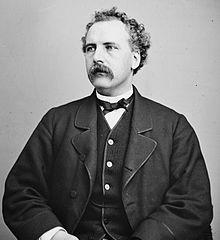Alexander Pope Quotes about Inspirational
An Essay on Criticism l. 525 (1711). The Oxford Dictionary of Proverbs notes, "Although known in Latin (humanum est errare, it is human to err) and in earlier English versions, this saying is generally quoted in Pope's words." The ODP cites "To offend is humaine, to repent diuine" (Henry Wotton, 1578) and "To erre is humane, to repent is divine" (James Howell, 1659).
Some people will never learn anything, for this reason, because they understand everything too soon.
Alexander Pope (1806). “The Works of Alexander Pope, Esq. In Verse and Prose: Containing the Principal Notes of Drs. Warburton and Warton: Illustrations, and Critical and Explanatory Remarks, by Johnson, Wakefield, A. Chalmers, F.S.A. and Others. To which are Added, Now First Published, Some Original Letters, with Additional Observations, and Memoirs of the Life of the Author”, p.411
Alexander Pope (1776). “Works”, p.128
On life's vast ocean diversely we sail. Reasons the card, but passion the gale.
Alexander Pope (1825). “The Poetical Works of Alexander Pope: With a Sketch of the Author's Life”, p.198
Honor and shame from no condition rise. Act well your part: there all the honor lies.
Alexander Pope (1823). “An Essay on Man: In Four Epistles, to Henry St. John, Lord Bolingbroke : to which is Added, The Universal Prayer, with Other Poems”, p.33
Alexander Pope (1763). “An essay on man: By Alexander Pope, Esq. Enlarged and improved by the author. Together with his MS. additions and variations as in the last edition of his works. With the notes of William, Lord Bishop of Gloucester”, p.70
An Essay on Man Epistle 1, l. 95 (1733)
Alexander Pope, Alexander Dyce (1831). “Poetical Works”, p.78
There is a certain majesty in simplicity which is far above all the quaintness of wit.
Alexander Pope (1806). “The works of Alexander Pope. Containing the principal notes of drs. Warburton and Warton [&c.]. To which are added, some original letters, with additional observations, and memoirs, by W.L. Bowles”, p.64
Where beams of imagination play, the memory's soft figures melt away.
Alexander Pope, “An Essay On Criticism”







